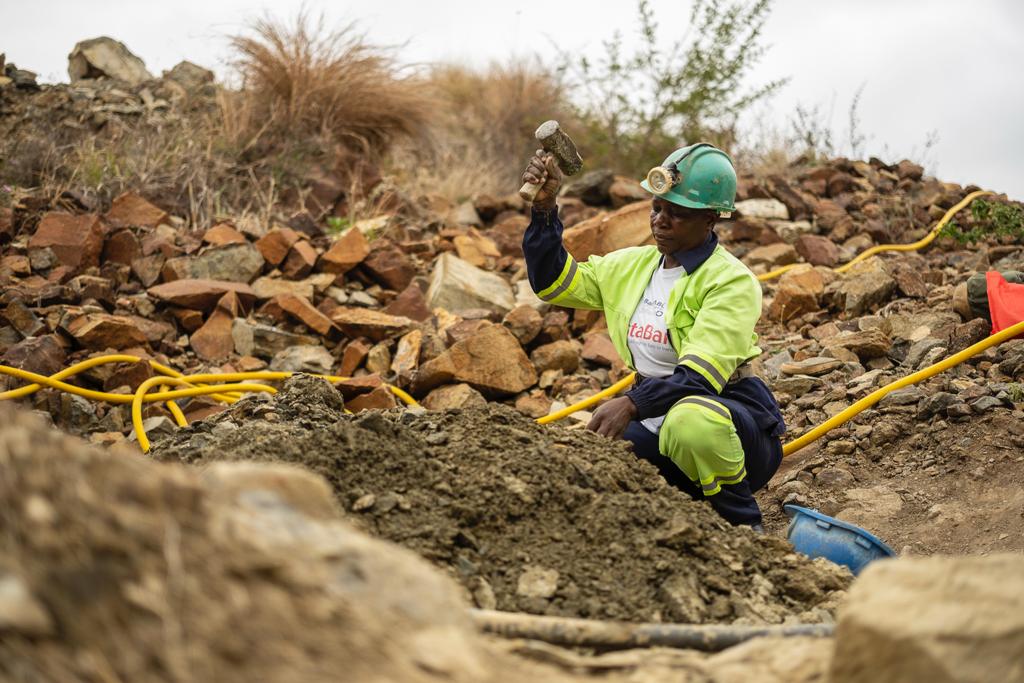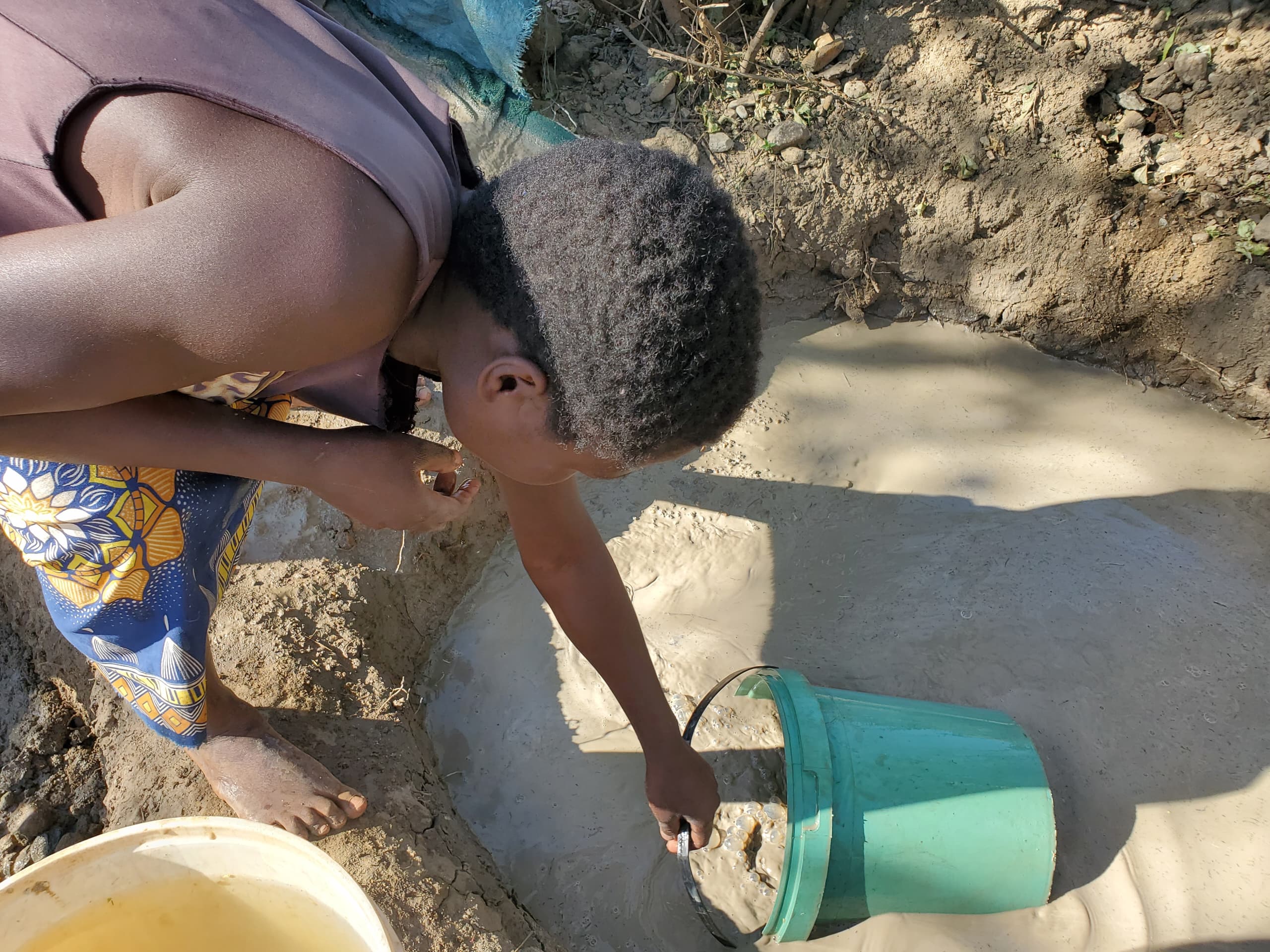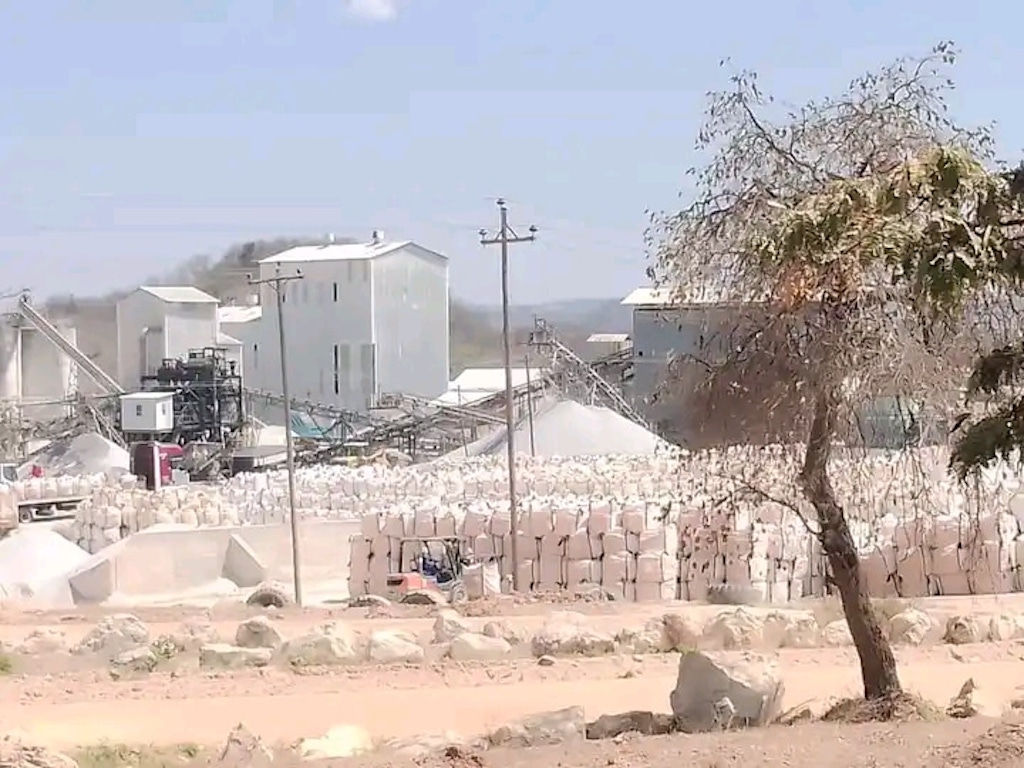Half a million people work in the informal mines in the African country. The few women in the industry suffer particularly precarious conditions. Some initiatives try to regularize their situation, and even help them become property owners.
Tafadzwa Mwanengureni
Sharai Masaga never imagined that she would end up running two mines. For years, the former housewife’s husband had supported the family. But the man, who had owned a mine in Mapanzure, a chrome-rich district of Zvishavane in south-central Zimbabwe since 2004, had already gone bankrupt several times.
So in 2012, Masaga, a mother of four, took the plunge and joined the growing number of Zimbabweans turning to artisanal mining as a way to make a living in the absence of formal employment opportunities – unregulated work accounts for three-quarters of the labour market in this African country, according to the World Bank. “I was working for other people and I depended on a monthly salary that sometimes I didn’t even get paid,” she says in a phone conversation. “I couldn’t report it because I was an illegal miner,” she explains.
For the country’s 1.5 million or so miners, almost a third of whom are artisanal, the profession of digging through the earth is a tedious and risky job that often involves intensive manual labour, lacks safety and can lead to death. But for women, who make up about 10% of artisanal miners, the challenges are multiplied, and they are often denied the same rights as men, who also have to fight for decent conditions. “They receive unequal pay and a smaller share of the profits, even though they work just as hard as their male counterparts,” explains Shuvai Mutami, president of the Zvishavane Women Miners Association.

Shuvai Mutami
To help bridge this gender gap, several initiatives have emerged in recent years, including non-profit organisations that provide training and workshops to teach female miners their rights and the tricks of the trade, or mines that hire only women. But neither of these has succeeded in recruiting enough female workers or protecting their rights.
Female miners receive unequal pay and a smaller share of profits, even though they work just as hard as their male counterparts
Today, one of the mines Masaga runs, in the town of Zvishavane, is her own. “I never imagined myself as a landowner as it was considered taboo and a disgrace to society to see a woman wearing a fatigues and working in a male-dominated field,” she says. The turning point in her career came in 2021, when the Zimbabwe Environmental Law Association (ZELA), a non-profit organisation, launched its Women’s Decent Work Campaign, helping at least 200 female miners obtain mining licences, improving their income and therefore their living conditions. “They educate us on equal rights and inform us about licence ownership and the registration of mining rights,” says Masaga, who was introduced to ZELA through her membership in the Zimbabwe Women Miners Association.
According to Nyaradzo Mutonhori, ZELA’s programme officer, the organisation’s relationship with women miners goes back more than a decade, spanning Zimbabwe and the entire Southern African region. “The chances of women getting a job in formal mining are slim as it remains a male-dominated sector, even when it comes to employment in large mining [entities],” says Mutonhori, citing “high costs and significant cultural barriers” as key reasons preventing them from accessing the formal mining sector. “There was a need to create a different space where women would feel free to come and talk about their experiences,” she continues.
Training to be owners
Working with organisations such as ActionAid Zimbabwe, Women and Law in Southern Africa and the Centre for Natural Resource Governance, among others, ZELA puts women on the path to acquiring rights so they can own their mines. They start by explaining the Mines and Minerals Act, how to fund their training at the Zimbabwe School of Mines’ Artisanal and Small-Scale Mining Academy (ASSMA), and then assisting them with the pole-setting process and geological surveys, Mutonhori explains.
Masaga started attending ZELA workshops in 2019 and three years later she obtained a license to operate her own mine. She describes her current working conditions as “fair, and without many barriers” and says: “There is a significant difference in benefits now that I am a registered miner. I can safely say that my finances are now stable.”
When Namatirai Mpofu worked in illegal mining, she “endured all kinds of insults and abuse”
Namatirai Mpofu, who gained ownership of a chrome mine in Mzvondiwa village in Mapanzure with the help of the ZELA programme, says the change this has brought to her life is like going “from earth to heaven”. Mpofu, 37, a single mother who also cares for her own mother, says she started working in mining in 2017 out of desperation. “I endured all kinds of insults and abuse in the fields, but the situation at home made me turn a deaf ear,” she says. Hearing about the help ZELA was providing through word of mouth, she contacted the organisation. “Through different programmes I managed to apply and register my own mine in 2022,” says Mpofu, adding that ZELA helped her enroll in ASSMA and taught her “proper mining”.
The impact this has had on his life, he continues, has been astonishing: as an artisanal miner, he used to earn $150 a week (about 139 euros), work three weeks – that is, he earned $450 a month – and load 39 tons of chrome in that period. In his own mine, in the same period, he produces 90 tons of chrome and sells it at a price of $60 a ton, which gives him a gross income of $5,400 – from which he must subtract production costs.
Mpofu, like Masaga, says that when she was an artisanal miner she could not report mineral theft or violations committed by other miners, a situation that has changed since she has been licensed. “For me, the programs were a godsend, since being a single mother is a disgrace in our society,” she says.
Despite these success stories, Chiedza Chipangura, a woman in mining activist and founder of Women Empowerment in Mining Zimbabwe, a women’s association that works with ZELA in the mining value chain, complains about the slowness of the process of formalising mining rights. “There are delays in the licensing process,” she says, adding that “some applications date back to 2018, which really hampers progress, causes disputes and violates the rights of women miners.”
“We are at a disadvantage,” she adds. “In some cases you find that an application that a man submitted after you has already been approved, but yours is still pending. Right now, the number of women in senior positions in the mining licence approval chain is probably 10%.”
ZELA’s Mutonhori also says that a lack of funding limits the organisation’s ability to meet demand for its services. “The demand is huge and we do what we can,” she says.
The story was originally published by El Pais collaboration with Egab, a platform that works with journalists from the Middle East and Africa.








